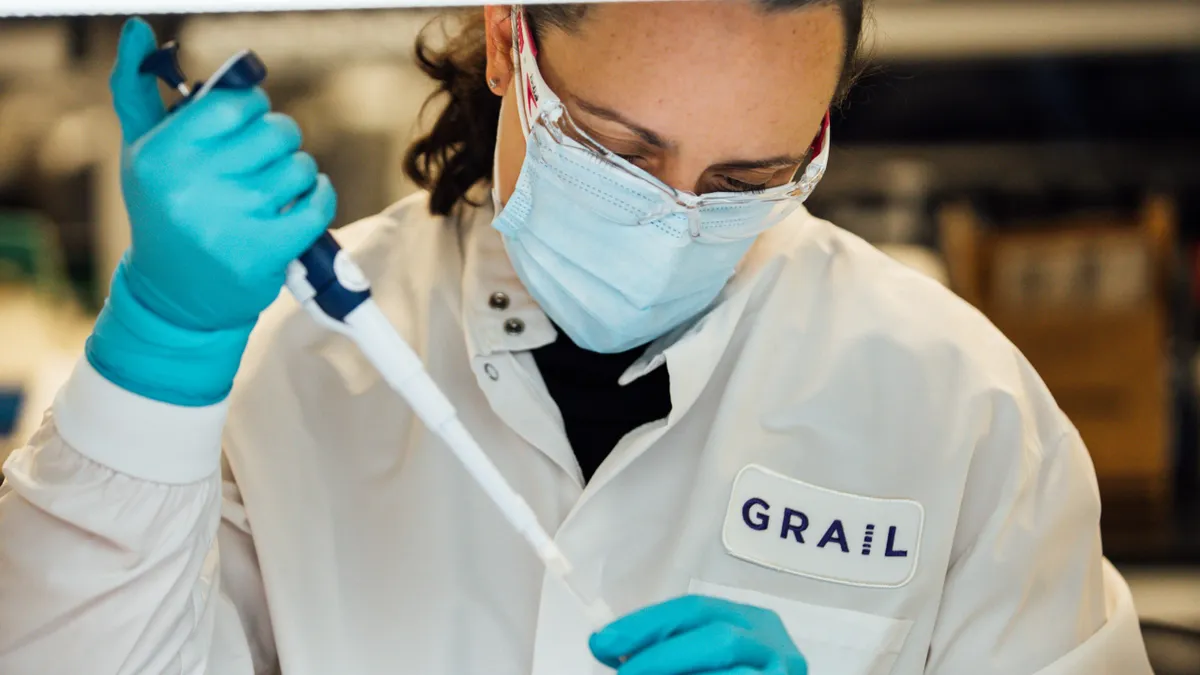Dive Brief:
- The FDA is still working to "test and build" its yet-to-be finalized software precertification program as it grapples with regulatory hurdles, Bakul Patel, director of FDA's Division of Digital Health told MedTech Dive in an interview. Apple, Fitbit and Johnson & Johnson are among the nine companies in the pilot launched in 2019 to help fast-track digital health products to market.
- The Pre-Cert pilot will continue through 2020 as the FDA is still "working through the nine companies, trying to figure out how they actually do business." Patel said that while the agency made progress last year, "I don't think we are out of the woods," adding, "we are continuing to understand the feasibility of this program."
- What Patel does know for certain is the "the regulations that are currently in place are not going to work" for what ultimately emerges as the finalized Pre-Cert program and FDA will "need to go back to Congress" to ask for the legislative authority. At this point, however, he said the agency hasn't determined "what specific regulations and authorities we would need to add."
Dive Insight:
The FDA initiative, led by Patel, seeks to reduce certification hurdles for developers of software-based medical devices by shifting responsibility for periodic software updates to manufacturers themselves.
But the uncertainty around the Pre-Cert program and the agency’s plans for regulating digital health technologies is making some industry observers nervous.
Bradley Merrill Thompson, a medical device regulatory attorney at Washington, D.C.-based Epstein Becker Green, says while he appreciates FDA taking its time and "trying to be careful," the progress of the Pre-Cert pilot has been "very slow." In particular, Thompson is concerned the agency hasn't worked out the specific statutory authority required.
"FDA can't ask Congress for authority to just do whatever the agency wants to do in its judgment. We need certainty and predictability, and we need to make sure that the agency doesn't go awry," Thompson said. "So FDA needs to get this figured out before they ask for statutory authority to implement it."
The pilot, which entered a formal testing phase last year, is focused on software as a medical device (SaMD), which the agency notes ranges from diagnostic software that allows a smartphone to view MRIs, to computer-aided detection software that performs image post-processing to help detect breast cancer.
However, a trio of senators last fall wrote to FDA questioning the Pre-Cert pilot's capacity to ensure public safety through excellence appraisals, the appropriateness of using the De Novo pathway for the pilot's statutory basis, and the effectiveness of real-world data being collected for postmarket surveillance of SaMD.
According to Patel, FDA is "trying to be adaptive" in its approach "because the technology is adaptive." Whatever is put in place must also be flexible to meet those needs, he said.
"We're kind of episodic today," Patel said of the way the agency regulates technology and devices. FDA's vision is to have a continuous regulatory approach that is "more in line with how products are delivered."
This "continuous look" will enable the agency to focus on "where things are not working and less on where things are working, so we can start choosing our activities in areas that need the most help," according to Patel, who says real-world data shared by manufacturers with the agency will enable them to better address problems with their products in the field.
But in Thompson's view, it's a "huge problem" for FDA to start asking for lots of postmarket data, while making the case the agency will never know as much about individual products as the companies that make them.
"Data always needs to be put in context. Raw information would likely be frequently misunderstood by FDA, and contextualizing raw information is a significant amount of work for the software developer to undertake," Thompson said.
Working Model Version 1.0, released in January 2019, outlines the FDA's approach for software precertification including using the De Novo pathway in concert with streamlined review during the pilot phase for the agency to assess if pre-clearance for firms is comparable to a traditional marketing submission.
The agency is "still building" out the program based on that draft document, according to Patel. "The contours of the program are defined there. The nuances of the program are what we're working through right now."
In general, "there has to be some premarket review before the product goes to market," he said, and FDA "still needs to know a company's health or their capabilities of making a product," as well as "how the product performs in the real world."
However, Thompson asserts the "so-called nuances" that Patel refers to are actually the most important parts of the FDA' s Pre-Cert program for developers that must have specific details.
"It’s relatively easy to talk in general terms about philosophy. It’s very difficult to translate that into something workable," Thompson said. "I think FDA has more than just mere nuances to work through at this juncture. They have fundamentally important issues to figure out."
Nonetheless, by the end of 2020, Patel hopes FDA will "have more learnings" to ultimately "stand up a program that's robust."
At the same time, given the ongoing novel coronavirus crisis, he says travel has been disrupted and a lot of the agency's resources have been diverted to help with the U.S. response to the pandemic. "We'll have to see how this all plays out."











